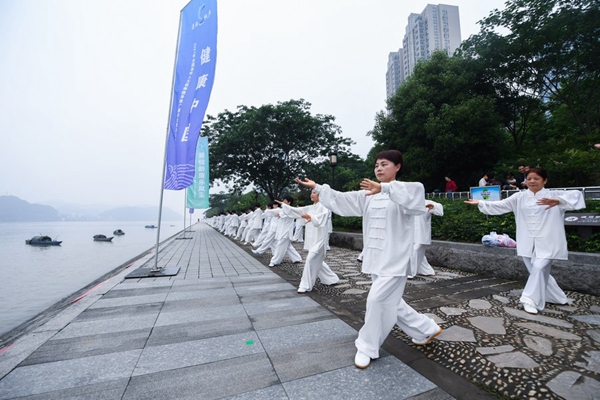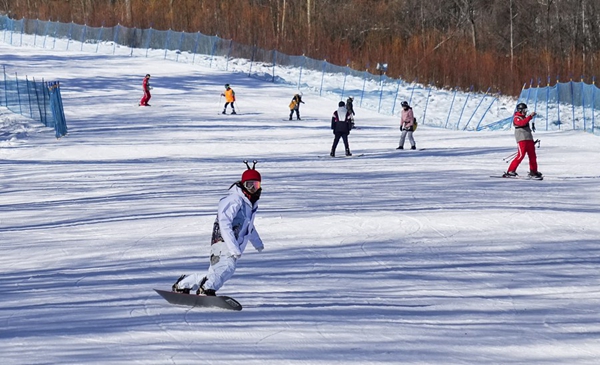China to increase per capita sports area to 2.6 SQM in 2025

Senior hobbyists of Taijiquan perform the traditional Chinese martial art by Fuchunjiang River in Tonglu County, east China's Zhejiang Province, May 19, 2021. (Xinhua/Xu Yu)
China publicized a plan to build a higher-level national fitness public service system.
BEIJING, March 23 (Xinhua) -- The total area for sports utilization per capita in China is expected to reach 2.6 square meters in 2025, according to a plan aiming to upgrade the national fitness public service system that was publicized on Wednesday.
China has been improving its national fitness infrastructure in recent years, demonstrating the success of the ongoing development of sports. The new plan expects a regular physical exercise participation rate of 38.5 percent in 2025 and 45 percent in 2035.
"The plan covers people of all ages," said Chen Shiyang, a professor from Beijing Sports University, who added that "the development of sports will be shared by all the people, and the sports culture will influence more and more areas."
The 2022 Winter Olympics becomes a key factor in encouraging people to enjoy sports.
When Beijing was awarded the rights in 2015 to host the 2022 Winter Olympics and Paralympics, China set a goal of engaging 300 million people in winter sports.
According to the National Bureau of Statistics (NBS), over 346 million Chinese people have participated in winter sports or related leisure activities by October 2021 since promised.

Skiers enjoy their time at Changbaishan Ski Resort in northeast China's Jilin Province, Nov. 15, 2021. (Xinhua/Xu Chang)
With a rapidly growing sporting population, the plan aims at building a better national fitness system. At least one sports instructor is appointed at each community and sports enthusiasts are encouraged to start their sports clubs.
"Introducing sports instructors into communities is a creative measure," said Wang Xueli, director of the center for the development of sports industry of Tsinghua University.
"It will activate the instructors as a group, satisfying the needs of as many people as possible," Wang added.
To promote the development of outdoor sports, the plan encourages local governments to set up sports facilities at available spaces such as parks, hills, and river banks.
"The plan pays enough attention to outdoor sports, which will enable people to enjoy nature and embrace health," said Lin Xianpeng, vice president of the management school of the Beijing Sports University.
The utilization of technology is also considered as one of the highlights in the plan. "Innovation is a key part of promoting sports, and technologies such as 5G will provide more possibilities for exercise," said Wang.